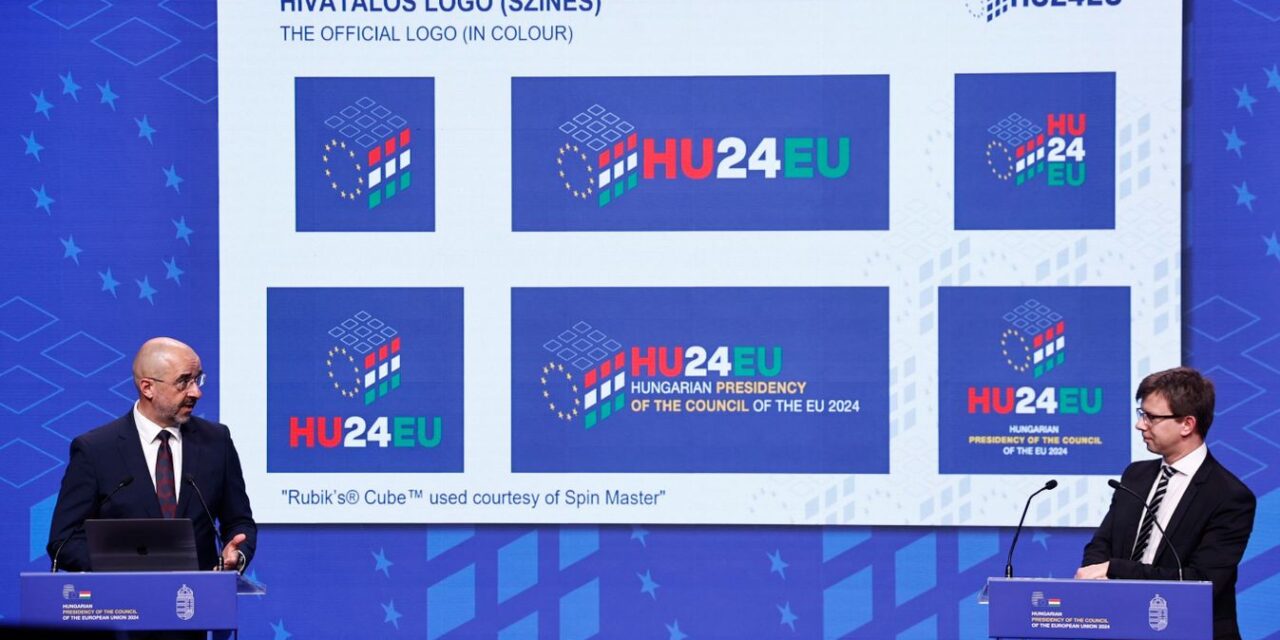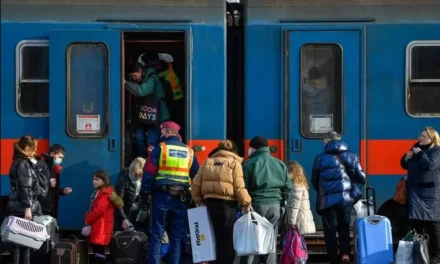From today, our country will take over the presidency of the European Union.
On Monday, Hungary took over the consecutive presidency of the EU, but the road leading to this was far from easy, because they tried to make it impossible for our country to occupy this position several times and in various ways: on June 1, 2023, in a report at the plenary session of the EP, it was stated in a report that Hungary is not suitable for the consecutive EU presidency to the presidency - Fanni Lajkó, an analyst at the Center for Fundamental Rights, reminds us of what preceded today's move.
According to Fanni Lajkó's summary, Katalin Cseh and Anna Donáth, István Ujhelyi, DK's Attila Ara-Kovács, Klára Dobrev and Csaba Molnár, who have worked a lot in the past five years against national interests and national interest enforcement, also voted for the said decision.
In addition, at the joint meeting of the two specialized committees of the European Parliament on July 17, 2023, a report was presented in which an organization claiming to be independent formulated proposals on how the possibility of successive EU presidencies could be taken away from Hungary and Poland.
When asked what the most important priorities of the Hungarian presidency will be, the analyst answered: despite the relentless political attacks and pressure, Hungary is ready to lead the way with a clear vision of the future and firm priorities.
"The Hungarian presidency has outlined seven key priorities that reflect the commitment to a stronger, more competitive and more cohesive Europe. The priorities include strengthening competitiveness and European defense policy, curbing illegal migration, shaping the future of cohesion policy, managing sustainable and competitive European agriculture and demographic challenges, and strengthening the integration of the Western Balkan countries".
The question arises as to what the Hungarian presidency can mean for Hungary and the EU, what changes can be brought about by our country occupying this post.
Fanni Lajkó pointed out: at a time of global instability, security vulnerabilities, illegal migration, natural disasters, climate change and significant demographic changes, Hungary's leading role will be key in managing these challenges and defining a clear, forward-looking agenda for the EU.
"While we are faced with wars, global competition and the need for institutional reforms, it will be the task of the Hungarian presidency to guide the EU through these troubled waters and define the responsibilities along which the Council will operate for six months," added the analyst.
Recently, Viktor Orbán discussed the objectives with the leaders of the most influential EU member states (Emmanuel Macron, Giorgia Meloni, Olaf Scholz). In this regard, the expert assessed that the Hungarian Prime Minister presented the program of the Hungarian presidency throughout Europe, which
received a positive response in Rome, Paris and Berlin.
"Points of agreement have emerged that Europe's competitiveness must be increased, as the EU's economic and political weight in the world is getting smaller and smaller, it has not been able to increase its leading role in recent decades, it has no meaningful say in the development of processes, instead only becoming an observer of world political events became In order to achieve this goal, the countries of the Western Balkans play an important role, whose accession would bring a new economic boom, which Western leaders also saw," Fanni Lajkó pointed out.
According to the analyst, in addition to the fact that the leaders expressed their satisfaction with the program of the Hungarian presidency during the negotiations, bilateral relations also played a major role.
"The wind of change was blowing in Brussels politics, so the issue of the long-term direction of the EU and the evolution of the balance of power in the European Parliament was also an important topic at these meetings," he added.
Cover photo: János Bóka, minister responsible for European Union affairs, and Zoltán Kovács, the European Union Minister, presented the program and logo of the Hungarian Presidency of the Council of the European Union for the second half of 2024, as well as the community pages, as part of a press conference held in Budapest's Várkert Bazaar on June 18. Government commissioner responsible for the preparation and implementation of the operative tasks of the Hungarian presidency in the second half of 2024
Source: Magyar Nemzet/Arpad Kurucz












